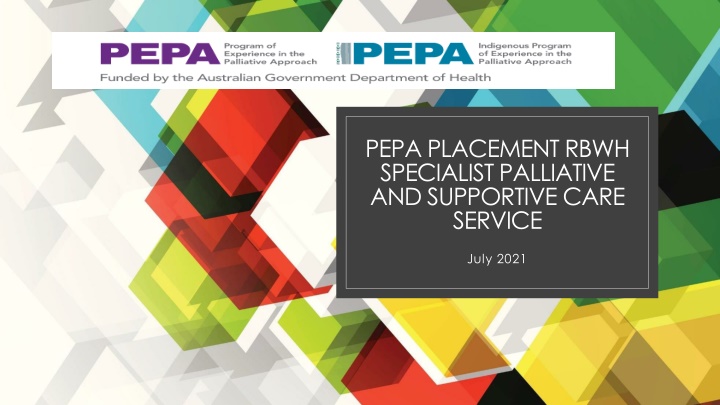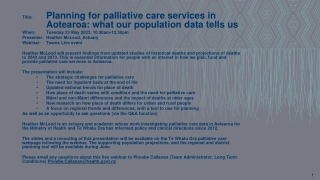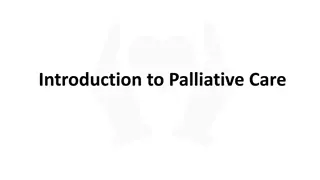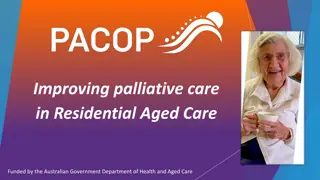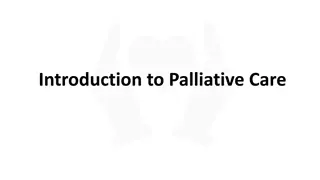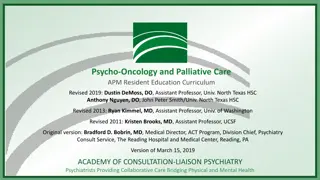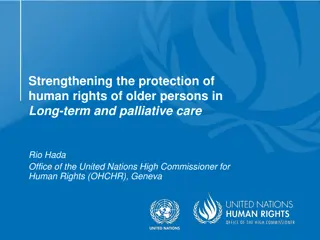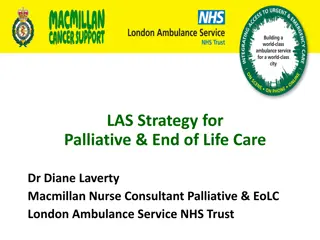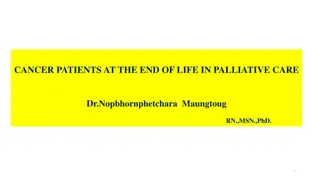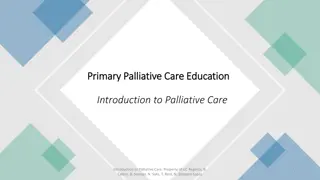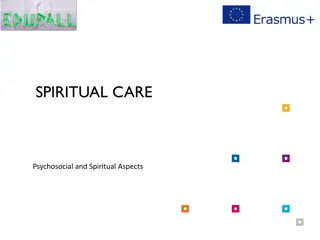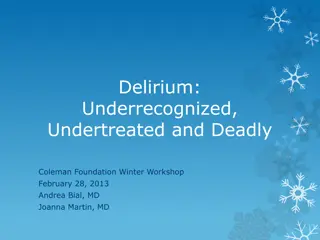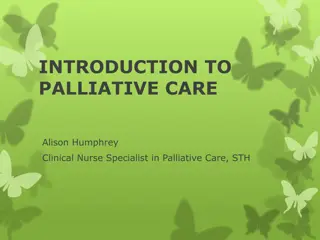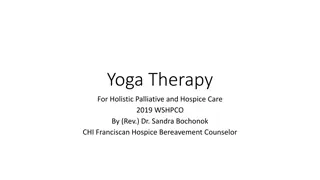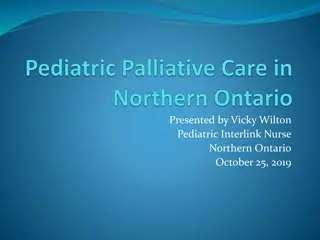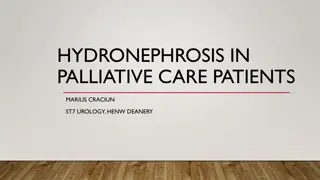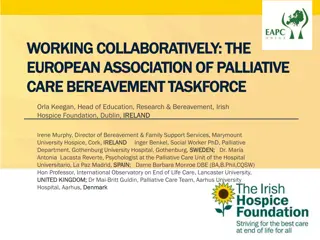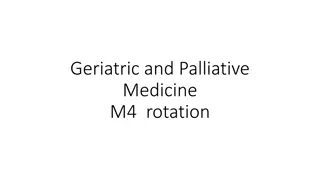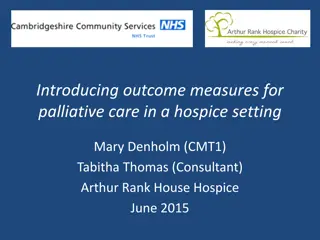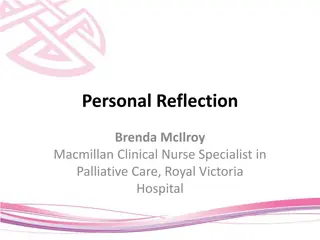Specialist Palliative and Supportive Care Service at RBWH - Service Overview
Service at RBWH includes a team of consultants, clinical nurses, registrars, and trainees providing palliative care without allocated beds. Role involves managing referrals, patient alerts, and outpatient services. Clinical nurses play a crucial role in patient care, PCOC data collection, and referrals for EOLC. Handovers, education, and meetings are integral parts of the service. Weekly reflection meetings focus on honoring passed patients and self-care.
Download Presentation

Please find below an Image/Link to download the presentation.
The content on the website is provided AS IS for your information and personal use only. It may not be sold, licensed, or shared on other websites without obtaining consent from the author.If you encounter any issues during the download, it is possible that the publisher has removed the file from their server.
You are allowed to download the files provided on this website for personal or commercial use, subject to the condition that they are used lawfully. All files are the property of their respective owners.
The content on the website is provided AS IS for your information and personal use only. It may not be sold, licensed, or shared on other websites without obtaining consent from the author.
E N D
Presentation Transcript
PEPA PLACEMENT RBWH SPECIALIST PALLIATIVE AND SUPPORTIVE CARE SERVICE July 2021
Service Structure 2.0 FTE Consultants (4 x PT consultants) 3.5 FTE CN (5 x PT Clinical Nurses) 1.0 FTE CNC 2.0 FTE Registrars / Advanced trainee s 1.0 FTE AO No allocated AH all utilised by ward staff ACP liaison at RBWH 7 day service from 0800hrs-1630hrs
Role within RBWH No allocated beds or admitting rights Palliative Care Liaison Service Paper based referrals faxed directly to department that remain continuous for OPD appointments AO arranges individual folders for each referral containing labels, discharges summaries and letters prior to presenting to nurses All Palliative Care, KSC and LSC patients have alert applied on HBICs and added by AO daily when admitted. Outpatients department for discharged patients 1200 PCOC episodes yearly 700 deaths in RBWH yearly
Role of the CNC & Clinical Nurses CNC has a mixed Clinical and Management role Clinical Nurses have an autonomous role throughout the hospital Independently review Phase 1 and Phase 4 patients Review New, Unstable and deteriorating patients with Registrar / Advance trainee. New patient consult electronic form completed each review. Refer to Metro North Community for patients returning home for EOLC Refer to TPCH or Redcliffe for inpatient EOLC to Palliative Care Units depending on closest hospital to home. PCOC data collected by CN (modified form without SAS) Heavily involved in prescribing / opioid adjustment with Registrar. Conversion Chart sourced. Triage all referrals for OPD no tool used, just clinical judgement Don t use CAK All discharging patients with CSCI are sent with SureFusers
Handover / Education / Meetings Morning handover each day inpatient list split into Team A and Team B. Both teams include 1 x CN or CNC and Reg/AT Weekly alternating M&M meetings and education held in morning prior to handover rotating roster for who is presenting including both medical and nursing staff. (M&M proforma sourced) Friday handover held in the afternoon to highlight patients for review over weekend Journal club monthly everyone roster. Nil bereavement follow up
Reflection and Self Care Soul Bowl Weekly meetings in the afternoon to discuss patients who have passed. Small trinkets/items placed in vase that symbolised the patient including interests, hobby's or personality. Roster of who provides afternoon tea Gives an opportunity to honour patients and reflect on their care Soul Bowl is used to identify patients for M&M discussions
Suggestions for change Soul Bowl Adapt Morbidity and Mortality proforma ? Start folders for inpatient referrals PCOC stickers with Phase / RUG /AKPS More exposure to inpatient consults to improve prescribing / conversion
What next now with PEPA? We all need to attend a 4 hour mentoring workshop prior to hosting at TBH Organise a date for Aurora at PEPA to come to Twba to complete workshop
